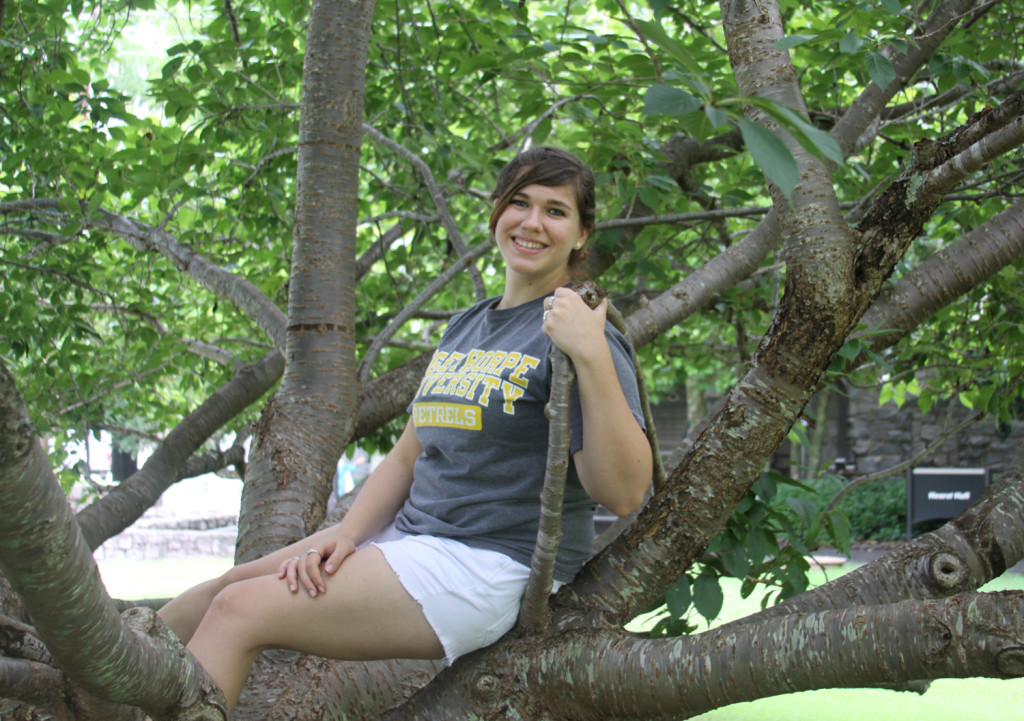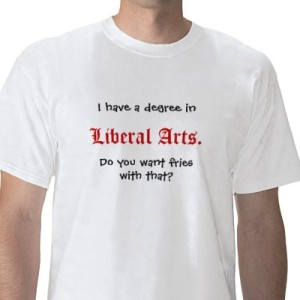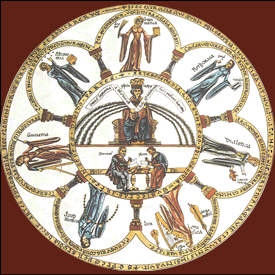 My name is Christie Pearce. I am a communications major and I love what I do. Man, does it feel good to get that off of my chest.
My name is Christie Pearce. I am a communications major and I love what I do. Man, does it feel good to get that off of my chest.
The modern economically-minded person might believe that students enroll in liberal arts colleges because we do not want to be trained in what is really important: medicine and technology. They rationalize the amount of time and money spent on our education, and mistakenly assume that society has nothing to gain in return for its investment. Of course, we deny that assertion; I would like to prove to you that communications majors, too, are beneficial members of society.
Why the sudden fervor for justifying my education, you may ask. It should suffice to say that, like many writers before me, I was inspired by a muse—mine being Bert Roughton, managing and senior editorial director of the Atlanta Journal-Constitution. Just like every ordinary twenty-something, I was spending my Saturday at a Modern Media Conference at Georgia State University (a field study for my internship with Pegasus Creative, a division of Oglethorpe’s University Communications) delving into the intricacies of the written word. In this particular session, my peers and I had 90 minutes to pick Mr. Roughton’s brain about any problems we were experiencing in our publications.
I asked a simple enough question: “how can I let my personality shine through in my articles, but still represent the perspectives of the institution I write for?”
His answer was straightforward and yet profound: “find inside yourself things your readers can identify with and bring that out in your writing.” Speaking for the masses, I believe we all have grown tired of being told we are being educated so that we can be unemployed, or that our passions lie in useless subjects.
Allow me to rewind for a moment to May 21, 2011: high school graduation day. After four years of training in digital electronics, drafting and design, and computer integrated manufacturing, I was graduating with a dual seal in engineering. Still, to this very day, people ask me “how’s Georgia Tech?” and I inform them (again) that I decided to study politics and communications at Oglethorpe University. In return, I often get an inquisitive look which says “why would you waste your abilities on that?” To this attitude, I give my rebuttal.
The liberal arts curriculum is historically one of the most rigorous courses of study an intellectual could pursue. It educates students in a wide variety of disciplines which develops high levels of critical thinking and general reason (which is the basic foundation of Western civilization). Here at Oglethorpe, the common vein that runs through our education is the Core curriculum, which every student is required to take. We are exposed to literature, philosophy, history, and yes—math and sciences as well. This method has been passed down for millennia as the focus of institutions of higher learning and has educated the likes of Sir Isaac Newton, Dr. Martin Luther King Jr. and Ted Turner.
The marketability of a liberal arts degree is significantly underestimated. Liberal arts curricula teach a person how to think, which is essential for problem solving, creativity, adaptability and logic. These are consistently listed among the most desirable qualities in an employee.
I leave you with a question in a recent Fiscal Times article: “…Without a strong background in history, philosophy and literature, how can this generation lead the next? Will these students understand how to govern a nation or manage a company?”


